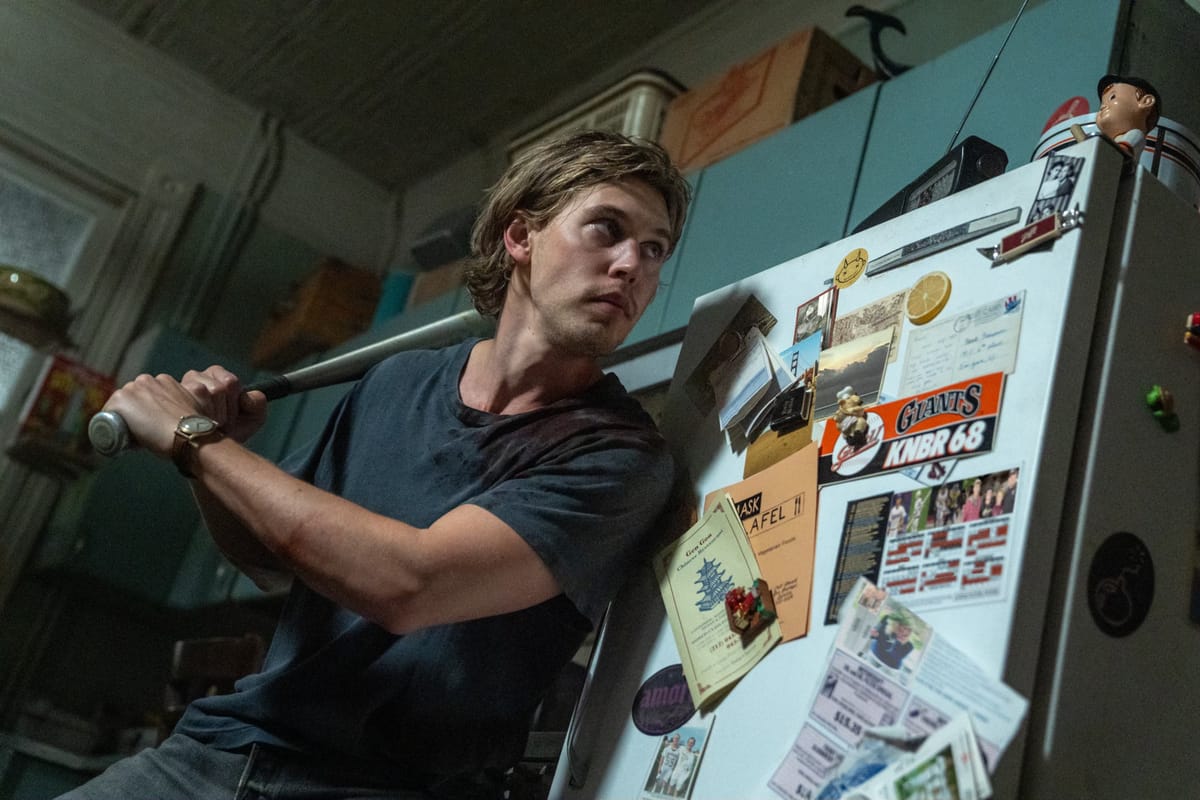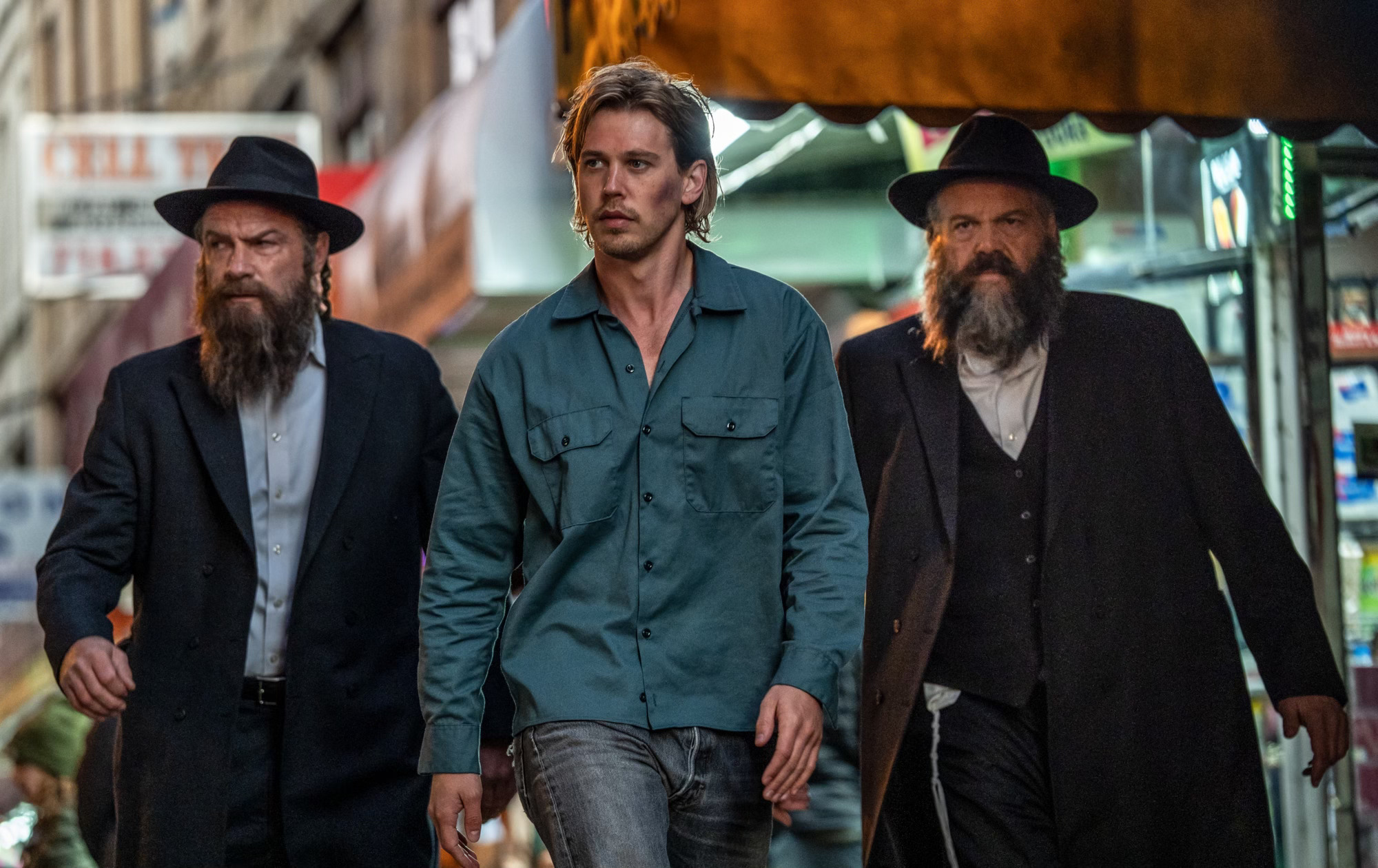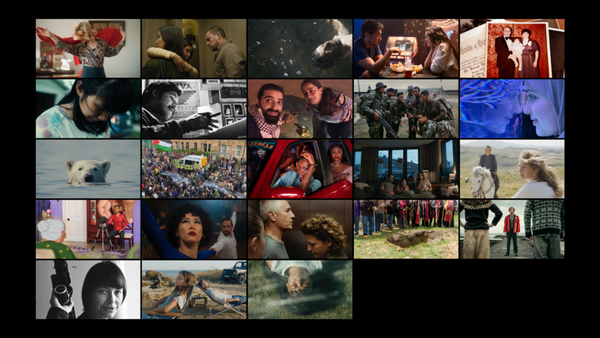Darren Aronofsky Throws a Career Change-Up with 'Caught Stealing'
In his messy neo-noir caper, the filmmaker muses on roads not taken.

I’ll be the first to admit that director Darren Aronofsky does not make the easiest movies to watch. Although he made one of my all-time favorites with The Fountain, his work tends to exist between wholly depressing (Requiem for a Dream, mother!) and the beautifully melancholic (The Fountain, Black Swan, The Wrestler). He’s been a name filmmaker for over a quarter of a century, and been at the highs and lows of the industry, but was he always due to be this kind of storyteller? Could he have been someone else? That’s the question lurking in the background of Caught Stealing, an adaptation of Charlie Huston’s novel of the same name. Set in 1998, the year Aronofsky made a splash with his debut feature Pi, the director’s new film feels like a mishmash of his sensibilities combined with other arthouse/indie directors, following a character who can’t stop thinking about someone else he could have been.
Austin Butler stars as Hank Thompson, a former baseball phenom who’s now an alcoholic bartender with a bad knee following a car crash just before the MLB draft. Hank doesn’t dwell on his resentments, but he also seems pretty comfortable to amble along aimlessly with his pseudo-girlfriend Yvonne (Zoë Kravitz). When his Brit-punk neighbor Russ (Matt Smith) asks Hank to cat-sit while Russ heads to his dad’s funeral in London, Hank reluctantly agrees. Unfortunately for Hank, Russ has crossed some very bad people, which leads to Hank getting mixed up with gangsters of various ethnicities as they seek a key that was in Russ’ possession. Amidst all of this, Hank is still grieving the life he never lived as pro ballplayer (he’s always listening to or watching his beloved San Francisco Giants) as well as the tragic circumstances that led to him losing out on sports stardom.
The 1998 year feels important for several reasons. Aside from the usefulness to the plot (no Internet shortcuts here), 1998 sets the film in the same year as not only Pi, but also The Big Lebowski. But whereas the Coens’ comic classic happily trapezed through L.A. stoner noir, Aronofsky’s Pi was rendered in gritty, unnerving tones with themes of obsession and madness. The Dude gets to go bowling. Maximillian Cohen gets an appointment with a power drill.
Reteaming with cinematographer Matthew Libatique (who has shot all of Aronofsky’s movies) [correction: Maryse Alberti shot The Wrestler], the two return to their 1998 New York, and render it cleanly, without the grime and grit, which feels purposeful. The film is packed with 90s needle-drops, but there’s an acknowledgement that the punk rock scene was already on its way out by the late 90s (CBGB’s would close less than a decade later, marking the end of an era). The harsh, aggressive cinematography of Pi and Requiem for a Dream give way to a movie that opens with a Wes Anderson-esque title card (Aronofsky acknowledging another of his contemporaries) and nice clean lines even when Hank is vomiting on vestibule door to his apartment building. The director wants to lean into the darkness of the story, but he’s renders it with the tidiness of Hollywood filmmaking.

The push and pull between Aronofsky’s inclinations and audience appeal seems to be the central tension for the director. We can see how Aronofsky could have pursued other artistic avenues, but he can’t help being himself, as dark and unforgiving as that may be. Caught Stealing exists in an imagined universe for the director where he instantly got access to one of Hollywood’s hottest stars and ran a crowd-pleasing caper where the hero is literally trying to “save the cat” (a screenwriting shorthand about simplistic storytelling) only to keep coming back to his bleakest impulses. The movie’s first act plays like it’s going to be a dark comedy only to slam face-first into neo-noir, and then vacillating between the two as Aronofsky tries to manage both the quirk and the pathos of his story.
It makes for a film that doesn’t necessarily “work,” and yet feels fitting for its protagonist, a guy in immediately dire circumstances who can’t stop lamenting the life he lost and dreaming what could have been. Aronofsky’s career, like so many successful directors, is checkered by, “What ifs?” What if Warner Bros. had been crazy enough to let him direct a gritty Batman reboot? What if his original vision for The Fountain hadn’t fallen apart and been relegated to a graphic novel? Aronofsky has had a career most aspiring filmmakers would envy, but there’s a long list of movies, both indies and blockbusters, he chose not to do.
That underlying sense of regret and wonder is what girds Caught Stealing even in its weakest moments. It’s impossible to watch Liev Schreiber and Vincent D’Onofrio as two Hassidic gangsters and not think of the Hassidim bearing down on Max in Pi but rendered as comic and more commercially viable. They have quips! They have a bubbe! And yet, as throughout Caught Stealing, it all gets violent and destructive. Every nod to a lighter movie, like having After Hours star Griffin Dunne play the owner of the bar where Hank works, only leads to a dour outcome as if Aronofsky is acknowledging, “Sorry, this is who I am. I can only see rebirth and catharsis through suffering and death.”
For some, this means Caught Stealing inevitably caves in on itself or reads as phony. How dark can you be if a guy is running around with a kitty cat and always checking the score of the Giants’ game? How upbeat can you be when you have this much violence and chaos and your name isn’t “Quentin Tarantino?” For those who just want to see a fun movie with that guy from Elvis, Caught Stealing can be a bumpy ride, and that’s a totally fair assessment for a film that can give you tonal whiplash. But within the context of Aronofsky’s filmography, it makes for an interesting retrospective. It doesn’t retread his past work, but acknowledges his artistic interests and how they could never comport with those of his peers. He can’t help but play the game his way.
Caught Stealing opens in theaters on August 29th. Matt Goldberg is a film critic who lives and works in Atlanta. If you enjoyed this review, check out his newsletter, Commentary Track.
David Chen’s Quick Take on ‘Caught Stealing’
I had a chance to check out the movie at a press screening last night and shared my (mostly positive) thoughts in the vlog below.
Other Stuff David Chen Has Made
- On Decoding TV, Patrick Klepek and I are continuing to discuss Alien: Earth and we just started our weekly coverage of Peacemaker Season 2, which I think is one of the most interesting comic book TV crossovers ever. Listen here.
- On The Filmcast, we reviewed Ne Zha 2. Despite its flaws, this an incredible cinematic experience and I strongly recommend checking it out in IMAX 3D if you can.
- [PAID ONLY] On Decoding TV’s paid feed, Patrick Klepek and I discussed the first season of Smoke on Apple TV+. This is a show that goes totally off the rails and ends up not being very good, sadly.
- [PAID ONLY] On my personal Patreon, @joyofnapping and I have been experimenting with a new format where we discuss five Tiktoks that defined the past week on the internet. Here’s the latest episode.
- I’ve been really enjoying working with Matt Goldberg and Dan Gvozden over at Decoding TV on their recaps for Alien: Earth and Peacemaker. If you enjoyed Matt’s review above, please consider subscribing to Decoding TV as well to get his ongoing TV coverage (it’s free!)





